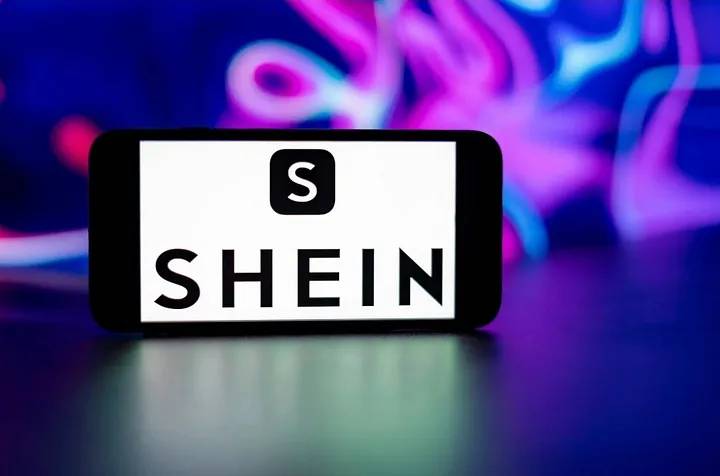Shein, a fast-fashion and lifestyle retailer from China, is planning to go public in 2024. This brand has become a favorite among young shoppers thanks to its trendy, seasonal clothing that doesn’t break the bank. But despite its popularity, there are a lot of questions surrounding Shein’s business practices.
Who Owns Shein?
Shein is owned by Sky Xu, also known as Chris Xu in English media. Xu became a billionaire after founding Shein in 2015 with Molly Miao, who now serves as the company’s COO. Maggie Gu and Henry Ren were also part of the team from the beginning.
Shein started by making wedding dresses but quickly expanded to all types of clothing for both women and men. Along the way, however, the company has faced some serious accusations, including copyright infringement, poor working conditions, and even forced labor. Many say Shein’s designs look suspiciously similar to those of other brands.
What Is Shein?
Shein is an international online store that specializes in fast fashion. While it’s known for its clothes, Shein also sells shoes, accessories, home goods, beauty products, and even pet supplies. The company was originally launched in 2008 by Chris Xu, under the name SheInside.
In its early days, SheInside operated as a wholesaler of wedding dresses in China, selling them to third-party retailers. However, in 2013, Shein became a fully integrated retailer, meaning it took control of its own supply chain and design process. That year, the company rebranded to Shein and saw orders skyrocket, surpassing 5 million.
Today, Shein is one of the world’s most popular online fashion platforms, even beating Amazon as the most downloaded shopping app in the U.S. in 2021. Though based in China, Shein mainly targets shoppers in the U.S., Europe, and Australia, with Gen Z as its core audience. Gen Z loves Shein for its trendy, affordable clothing.
The Rise of Shein
Shein’s explosive growth can be credited to heavy advertising on TikTok and its ability to keep up with high demand during the Covid pandemic when other companies struggled with supply chain disruptions. Shein embodies fast fashion like no other, adding over 10,000 new products to its website every day.
How Much is Shein Worth
As of March 2023, Shein was valued at $66 billion. The company was worth even more in 2022 at $100 billion, but a decrease in venture funding hit many tech companies, including Shein’s competitor Pinduoduo.
Shein’s Vast Product Range
Shein isn’t just about fashion. Besides women’s, men’s, and kids’ clothing, Shein offers a wide range of products like shoes, accessories, beauty products, home goods, sports gear, electronics, and pet supplies—all at affordable prices. If you’re looking for something on a budget, chances are Shein has it.
Shein’s Business Model
Shein’s business model is all about speed and flexibility. They use a “test and repeat” approach, similar to brands like H&M and Zara. Here’s how it works: Shein starts by producing small batches of clothing, usually around 50 to 100 pieces for each item. If something sells well, they’ll make more. If not, they stop producing it. Only about 6% of Shein’s items stay on the site for more than 90 days.
What sets Shein apart is how fast they move. While most companies take months to get new clothes ready to sell, Shein can do it in just 25 days! This means they’re able to quickly jump on the latest fashion trends and get new styles to their customers before other brands.
Shein Haul
Shein is also great at grabbing the attention of Gen Z, their main audience, through social media—especially TikTok. They work with influencers and celebrities who have big followings to show off their clothes. If you search “Shein haul” online, you’ll find tons of videos where people share their Shein purchases, often for under $10. Plus, Shein’s website features a Style Gallery, where customers can showcase their outfits for everyone to see.
Buy Now, Wear Once
Shein’s fast fashion approach has led to many issues. One of the biggest concerns is that their business promotes a “buy now, wear once” habit. They add new clothes all the time and use countdown timers on sales, encouraging people to make quick purchases. Many of these items are only worn a few times before being thrown away. Returned items often end up in landfills because it’s cheaper for Shein to discard them than restock them. This raises serious worries about the environmental impact of their business.
evoluSHEIN or Greenwashing,
Shein tried to improve its image by launching a line of “sustainable” clothing called evoluSHEIN. But many people believe this is just greenwashing, meaning Shein is claiming to be eco-friendly without making real changes.
Design Theft Allegations
Shein has also been accused of copying designs from smaller brands and independent designers. Many say Shein steals their ideas and sells them at lower prices, hurting their businesses.
Labor Issues
Shein’s factories have faced criticism for poor working conditions. There are even claims of forced labor in some cases. U.S. regulators are now investigating these allegations, adding more pressure on the company to address these concerns.
Shein Competitors
Shein isn’t alone in the fast fashion world—it’s up against some big names. Here’s a look at their main competitors:
-
H&M
A Swedish fast fashion brand worth around $27 billion. H&M is known for its trendy, affordable clothing, much like Shein.
-
Zara
Owned by Spanish company Inditex, Zara is one of the largest fast-fashion retailers in the world. Inditex itself is valued at $126 billion and operates multiple fashion brands. Zara is famous for its quick turnaround time from design to store.
The e-commerce giant is valued at a whopping $1.5 trillion. While Amazon isn’t just a fashion retailer, its massive marketplace sells clothing alongside virtually everything else you can think of. Plus, its cloud services (AWS) add another huge stream of revenue.
- Temu
A rising competitor, especially in Asia. Temu is owned by Chinese e-commerce giant Pinduoduo, which is valued at over $180 billion. Temu and Shein have rapidly gained popularity by offering a wide range of products at low prices, including electronics, home goods, and, of course, clothing. They’ve also capitalized on social media and have used gamification strategies to engage young shoppers, making them a key competitor to Shein.
In many ways, Temu is the next big player to watch. Their growth in app-based shopping mirrors Shein’s rapid rise, and they’re quickly becoming a serious rival in the online retail space.


